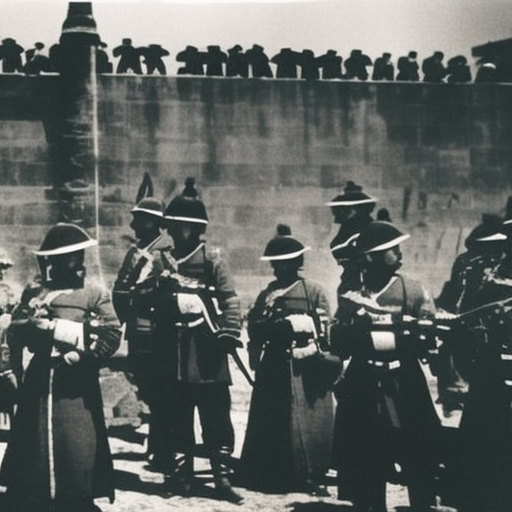Summary:
The Opium Wars were a series of conflicts between China and Western powers in the mid-19th century. These wars were primarily fought over the trade of opium, which was being smuggled into China by British merchants. The wars resulted in China’s defeat and forced the country to make significant concessions to the Western powers, leading to a period of increased foreign influence and control over Chinese affairs.
Background:
During the 18th and early 19th centuries, the British East India Company began smuggling opium from India into China. The Chinese government, concerned about the social and economic problems caused by widespread opium addiction, attempted to crack down on the trade. In 1839, the Chinese authorities confiscated and destroyed a large quantity of opium, leading to tensions between China and Britain.
The First Opium War (1839-1842):
The conflict began when the Chinese government seized a British ship, the Arrow, on suspicion of piracy. The British used this incident as a pretext to launch a military campaign against China. The superior firepower and technology of the British forces quickly overwhelmed the Chinese, who were unprepared for modern warfare. The Treaty of Nanjing, signed in 1842, ended the war and forced China to make several concessions. These included the cession of Hong Kong to Britain, the opening of several Chinese ports to foreign trade, and the payment of a large indemnity to Britain.
The Second Opium War (1856-1860):
The Second Opium War was triggered by a series of incidents, including the seizure of a Chinese-owned ship, the Arrow, by the British. This time, the conflict involved not only Britain but also France, which joined forces with the British against China. The Western powers once again had a significant technological advantage, and their forces quickly captured Beijing. The Treaty of Tientsin, signed in 1858, further expanded the concessions forced upon China. It allowed for the establishment of foreign embassies in Beijing, legalized the opium trade, and opened more Chinese ports to foreign trade.
Impact:
The Opium Wars had a profound impact on China. The defeat and humiliation suffered by the Chinese government undermined its authority and legitimacy. The treaties signed with the Western powers weakened China’s sovereignty and allowed for increased foreign influence and control over Chinese affairs. The opium trade, which had been illegal in China, was now legalized and expanded, leading to a further increase in addiction and social problems.
Long-term Consequences:
The Opium Wars marked the beginning of a period of increased Western imperialism in China. The unequal treaties forced upon China by the Western powers opened the country to further exploitation and control. The wars also highlighted the technological and military superiority of the West, leading to a period of self-reflection and reform in China known as the “Self-Strengthening Movement.” This movement aimed to modernize China’s military and industrial capabilities to better resist foreign encroachment.
Conclusion:
The Opium Wars were a turning point in Chinese history, marking the beginning of a period of increased foreign influence and control. The wars resulted in significant territorial and economic concessions for China and legalized the opium trade, leading to widespread addiction and social problems. The conflicts also highlighted the technological and military superiority of the Western powers, leading to a period of self-reflection and reform in China. The Opium Wars remain a contentious topic in Sino-Western relations and continue to shape perceptions of the past and present.












